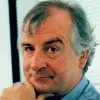We hear only half of what is said to us, understand only half of that, believe only half of that, and remember only half of that.
Mignon McLaughlin (1913-1983) American journalist and author
The Neurotic’s Notebook, ch. 5 (1963)
(Source)
Quotations about:
filter
Note not all quotations have been tagged, so Search may find additional quotes on this topic.
Bad roads act as filters. They separate those who are sufficiently appreciative of what lies beyond the blacktop to be willing to undergo mild inconvenience from that much larger number of travelers which is not willing. The rougher the road, the finer the filter.
Joseph Wood Krutch (1893-1970) American educator, writer, critic, naturalist
Baja California and the Geography of Hope, Introduction (1967)
(Source)
This was a thought that Krutch adapted and repeated in a number of writings.
In The Forgotten Peninsula, A Naturalist in Baja California, Prologue (1961), Krutch quotes an acquaintance as saying, regarding the peninsula's unspoiled beauty, "Baja is a splendid example of how much bad roads can do for a country." This quotation was often misattributed directly to him, and he adopted the sentiment.
Late in his life (Winter 1967-68), Krutch was interviewed by Edward Abbey for Sage magazine (reprinted in One Life at a Time, Please (1988)), and discussed the proposed development of the new Canyonlands National Park:Too many people use their automobiles not as a means to get to the parks but rather use the parks as a place to take their automobiles. What our national parks need are not more good roads but more bad roads. [...] There’s nothing like a good bad dirt road to screen out the faintly interested and to invite in the genuinely interested.
Only a child sees things with perfect clarity, because it hasn’t developed all those filters which prevent us from seeing things that we don’t expect to see.
Douglas Adams (1952-2001) English author, humourist, screenwriter
Dirk Gently’s Holistic Detective Agency (1987)
(Source)
The emotions I feel are no more meant to be shown in their unadulterated state than the inner organs by which we live.
Hannah Arendt (1906-1975) German-American philosopher, political theorist
The Life of the Mind (1978)
(Source)
In every object there is inexhaustible meaning; the eye sees in it what the eye brings means of seeing.
Thomas Carlyle (1795-1881) Scottish essayist and historian
(Misattributed)
Carlyle uses this phrase in his The French Revolution: A History, Part 1, Book 1, ch. 2 (1.1.2) (1837), but brackets it in quotations, and prefaces it with "For indeed it is well said ...." Nevertheless, the phrase is often misattributed directly to Carlyle.
The second half of the phrase (and sometimes the whole thing) has also been misattributed to Johann von Goethe, as "The eye sees only what the eye brings means of seeing." This is not found in Goethe's work, but may be distorted from a line in the Prologue to Goethe's Faust: "Each one sees what he carries in his heart."






